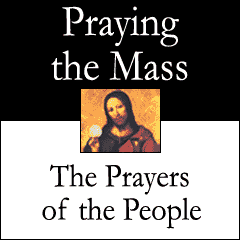By the way, a much better novel than “The Da Vinci Code”, but on the same topics, is by Umberto Eco (of “Name of the Rose” fame). It’s called “Foucault’s Pendulum” and it is a ripper. Here are some snippets to give you a taste. Also, you may wish to read Eco’s own take on “that bloody book” in an article called: God isn’t big enough for some people…
“What if, instead, you fed it a few dozen notions taken from the works of the Diabolicals…and threw in a few connective phrases like ‘It’s obvious that’ and ‘This proves that’? We might end up with something…”
“An idea of genius… let’s start straight away.”
“Joseph of Arimathea carries the Grail into France.”
“Excellent… I’ve written it. Go on.”
“According to the Templar Tradition, Godefroy de Bouillon founded the Grand Priory of Zion in Jerusalem. And Debussy was a Rosicrucian.”
“Excuse me, but you have to include some neutral data—for example, the koala lives in Australia.”
“Minnie Mouse is Mickey’s fiancée?”
“We mustn’t overdo it.”
“No, we must overdo it. If we admit that in the whole universe there is even a single fact that does not reveal a mystery, then we violate hermetic thought.”
“That’s true. Minnie’s in. And, if you’ll allow me, I’ll add a fundamental axiom: The Templars have something to do with everything.”
“That goes without saying.” (FP, p375)
“But look…do the Rosicrucians exist?”
“Whether you call them Rosicrucians or Templars, they protect themselves through secrecy. And that is why anyone who says he is a master, a Rosicrucian, a Templar, is lying.”
“But what do they want people to know?”
“Only that there is a secret. Otherwise, if everything is as it appears to be, why go on living?”
“And what is the secret?”
“What the revealed religions have been unable to reveal. The secret lies…beyond.” (FP, p208)
A plot, if there is to be one, must be a secret. A secret that, if we only knew it, would dispel our frustration, lead us to salvation. Does such a luminous secret exist? Yes, provided it is never known. Known, it will only disappoint us. …
Yet someone had just arrived and declared himself the Son of God, the Son of God made flesh, to redeem the sin of the world. Was that a run-of-the-mill mystery? And he promised salvation to all: you only had to love your neighbour. Was that a trivial secret? And he bequeathed the idea that whoever uttered the right words at the right time could turn a chunk of bread and a half-glass of wine into the body and blood of the Son of God, and be nourished by it. Was that a paltry riddle? And then he led the Church fathers to ponder and proclaim that God was One and Triune and that the Spirit proceeded from the Father and the Son, but that the Son did not proceed from the Father and the Spirit. Was that some easy formula for hylics? And yet they, who now had salvation with their grasp…turned deaf ears. Is that all there is to it? How trite… The mystery of the Trinity? Too simple: there had to be more to it.
Someone—Rubenstein perhaps—once said, when asked if he believed in God: “Oh, no, I believe…in something much bigger.” And someone else—was it Chesterton?—said that when men stop believing in God, it isn’t that they then believe in nothing: they believe in everything. (FP, p.620)







